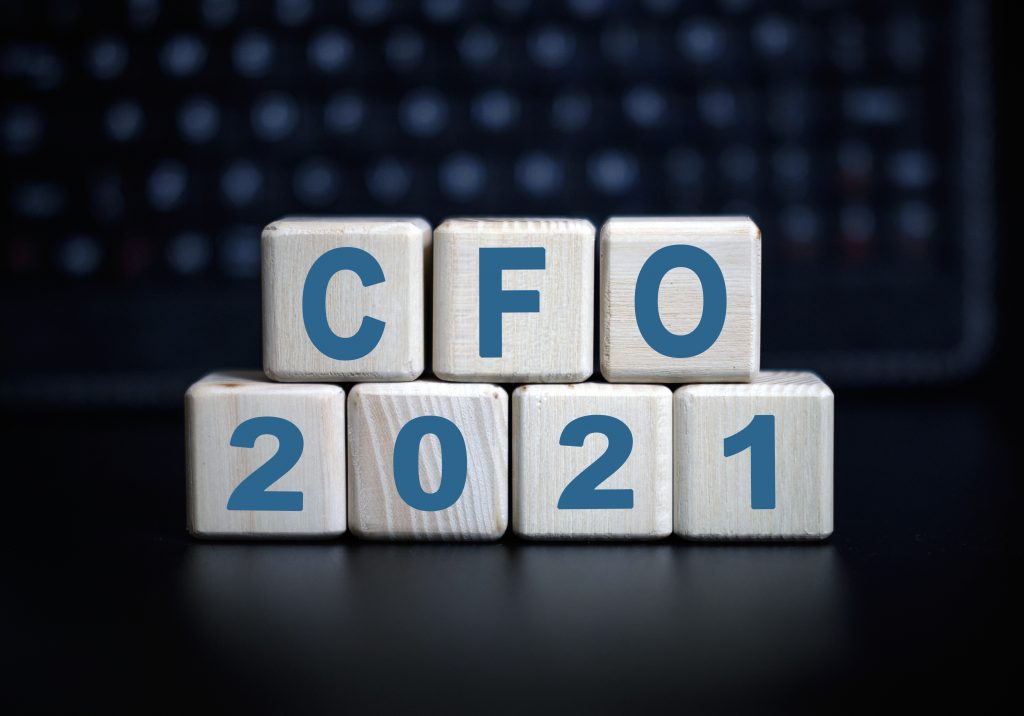The past year marked one of significant disruption across the globe, and the C-suite wasn’t spared from 2020’s pandemic-driven upheavals. Among the S&P 500, CFO resignations spiked 27.6% in 2020, with the average tenure of financial chiefs at S&P 500 and Fortune 500 companies dipping to 4.86 years from 5.3 years in 2015.
Why did so many CFOs cut their tenures short? The reasons behind these departures are varied and complex, of course, but the overwhelming stress and economic turmoil created by the pandemic undoubtedly played a prominent role – and likely inspired a few CFOs to seek out more promising opportunities or accelerate retirements they’d been planning to announce a few years down the road.
While the spread of the Delta variant underscores that the pandemic is not yet behind us, the availability of effective vaccines and COVID-19 treatments means that we’re in a very different position than we were one year ago, with much of the world reopening and entering a new normal.
But that doesn’t mean CFOs’ jobs have suddenly become easy. Persistent worries about the pandemic, anxiety about the durability of the economic boom, and the need to manage the transition to a world reshaped by trends like hybrid work and digital transformation ensure that CFOs have their work cut out for them over the coming months.
Navigating these complex challenges – and seizing the opportunities our new normal presents – will require a rethinking of the traditional role of the CFO. A CFO’s core tasks – overseeing organizational finances, optimizing risk management, and managing regulatory compliance – will remain the same. But the job must also become more horizontal, with companies eliminating any silos between the CFO and other key roles that are integral to the financial bottom line, including people management, data analytics, and digital transformation.
Changes in the regulatory environment
New taxation and financial reporting issues arising from an increasingly complex and unpredictable regulatory environment guarantee that there will be plenty within the traditional purview of the CFO to her busy.
For example, U.S. banking regulators have begun implementing reporting changes on the assets and liabilities of U.S. branches and agencies of foreign banks, in addition to requiring systemic risk reports for the combined U.S. operations of foreign financial institutions. With policymakers in Washington and across the globe mulling potential changes to corporate tax policy and the Biden administration ushering in new federal financial regulations, there’s an often-dizzying array of developments to track on the regulatory and compliance fronts.
Markets often respond to new regulations and unpredictability by becoming more risk-averse. Financial planning and analysis should take this into account, with corporate financial teams building resilience by closely monitoring events and drawing up risk management models, bolstering liquidity of funds while also setting aside reserves if possible, diversifying assets to minimize risk, and taking advantage of government support programs where applicable.
Improving team communications and overall wellbeing
These measures to keep companies out of the red will only go so far if leaders don’t pay proper heed to effective people management. A productive work environment depends on healthy, focused, and engaged employees. Workers who are burnt out, distressed, or otherwise struggling can’t perform to their full potential, which helps explain why 60% of CFOs in an Australian survey by KPMG said that the health and wellbeing of their teams is a top priority.
No, CFOs won’t have to also serve as heads of HR. But the intimate link between employee morale and financial performance means that they need to be plugged in to how their organizations are managing and meeting the needs of their talent – especially at a time of such profound change both within and outside the workplace.
CFOs should play a leading role in planning for the potential disruption to talent and workflow, as well as leveraging labor market turmoil to upskill and hire new talented staff. How well companies address these issues will be highly influential in determining their bottom-line performance.
Harnessing the power of data
If there’s one common denominator between the primary responsibilities of a CFO and less traditional focus areas like talent management, it’s the need for high-quality data capabilities to shed light on these areas.
A survey of CFOs conducted by EY found that 72% of executives believe they need more and better data to prepare for the future. That’s why many teams are investing in technologies to ramp up their data analytics and integrate data-driven technologies like artificial intelligence to streamline operations and unlock new efficiencies.
In evaluating their data priorities, CFOs should seek out solutions that help them better track their KPIs in real time and drill down deeply when necessary to better understand challenges or identify promising new opportunities. Of course, enhanced data capabilities can also improve risk modeling and help CFOs recalibrate their investment portfolios to better align with organizational needs.
These changes are only as good as the data that underpins them, which is why it’s crucial for CFOs to prioritize solutions with a proven track record of delivering reliable data and real-world business benefits.
As the long-anticipated digital transformation accelerates across industries, now is the perfect time for CFOs to envision how they can most effectively execute their roles in a world convulsed by rapid change and ongoing uncertainty. The road ahead won’t always be smooth – but with a focused approach and a willingness to break out of the traditional CFO paradigm, a more profitable, productive, and performance-driven destination awaits.
